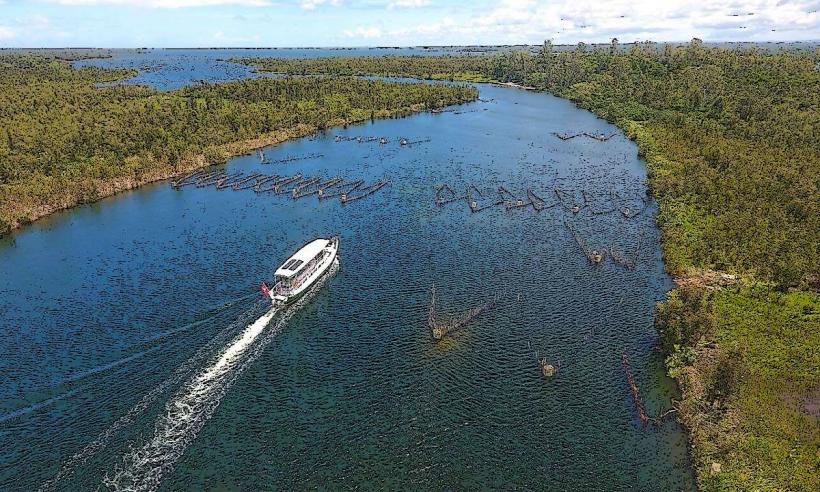Information
Landmark: Toamasina CathedralCity: Toamasina
Country: Madagascar
Continent: Africa
Toamasina Cathedral, Toamasina, Madagascar, Africa
The Toamasina Cathedral is a Roman Catholic cathedral situated in the city of Toamasina, Madagascar. It serves as the mother church of the Archdiocese of Toamasina.
Visual Characteristics
The cathedral is constructed primarily from concrete, featuring a light-colored facade, typically painted white or cream. Its architectural style is functional and modern, characterized by a prominent, square bell tower positioned adjacent to the main entrance. The building exhibits a moderate height, consistent with urban cathedrals built in the mid-20th century, and includes stained-glass windows depicting religious figures.
Location & Access Logistics
The cathedral is centrally located in Toamasina, approximately 1.5 kilometers west of the main port area. Access is via paved city roads, with street parking generally available in the surrounding blocks. Local transport options include taxis and pousse-pousse, which can drop visitors directly at the cathedral's vicinity.
Historical & Ecological Origin
The Toamasina Cathedral, officially known as the Cathédrale Saint-Joseph, was consecrated in 1954. It was constructed to serve as the principal place of worship for the Roman Catholic Diocese of Toamasina, established to support the growing Christian community in the region.
Key Highlights & Activities
Visitors can attend daily and weekly religious services, including Mass. The interior offers an opportunity to observe the cathedral's mid-century religious architecture and stained-glass artwork. Photography is generally permitted from the exterior, and often from the interior when services are not in progress.
Infrastructure & Amenities
Basic restroom facilities are available on-site or in nearby administrative buildings. The interior of the cathedral provides ample shade. Cell phone signal (4G/5G) is consistently available in this urban location. Several small shops and food vendors are located within a 200-meter radius in the city center.
Best Time to Visit
The best time to visit for photography is during the morning or late afternoon hours when the light is softer. The dry season, from May to October, offers the most favorable weather conditions for visiting Toamasina. Visiting outside of service hours allows for quieter observation of the interior.
Facts & Legends
The cathedral is dedicated to Saint Joseph, a common patron saint for workers and families, reflecting the city's historical role as a major port and economic hub. A local tradition suggests that offerings made at the cathedral during the annual Saint Joseph's Day celebration bring prosperity to maritime ventures and local businesses.
Nearby Landmarks
- Toamasina Port: 1.5km East
- Bazar Be (Central Market): 0.8km South
- Place de l'Indépendance: 0.6km Southeast
- Palm Beach: 2.5km Northeast

